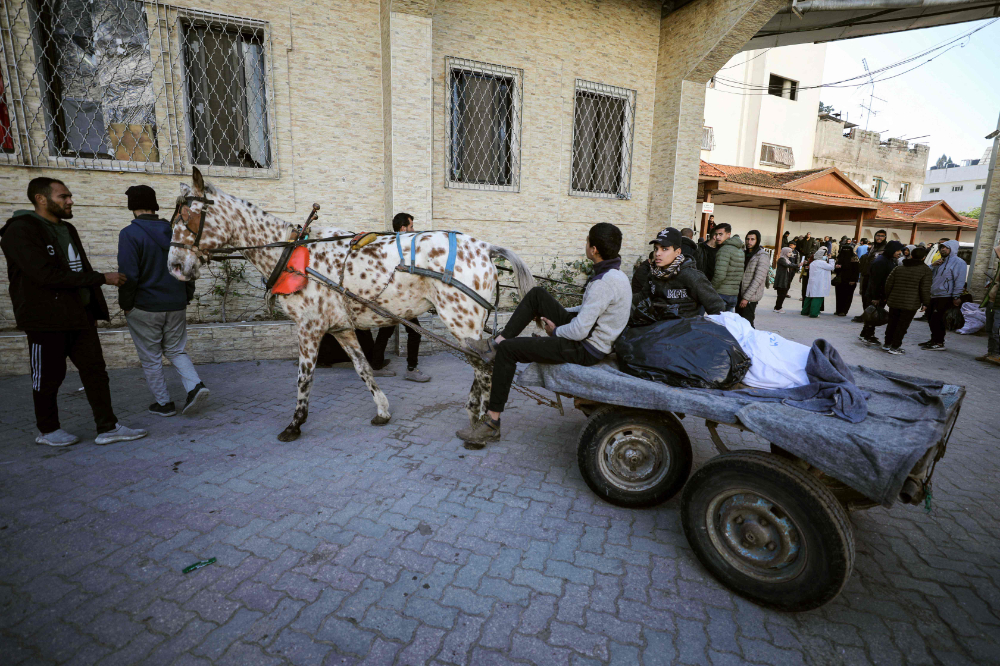NEW YORK CITY: The UN’s humanitarian chief, Martin Griffiths, on Wednesday said he was appalled by allegations that 12 of the 13,000 employees of the UN aid agency for Palestinians were involved in the Oct. 7 attacks by Hamas on Israel.
He said the UN Relief and Works Agency for Palestine Refugees in the Near East has taken swift action to launch an investigation, but added that its “lifesaving services to over three-quarters of Gaza’s residents should not be jeopardized by the alleged actions of a few individuals.”
In response to the allegations, several Western countries this week joined the US in suspending the vital funding they provide to the agency, despite the growing humanitarian catastrophe that continues to unfold in the besieged territory.
“To put it bluntly and simply, our humanitarian response for the Occupied Palestinian Territory is dependent on UNRWA being adequately funded and operational,” Griffiths said during a Security Council meeting to discuss the latest developments in Gaza.
“Decisions to withhold funds from UNRWA must be revoked.”
Griffiths painted a bleak picture of the humanitarian situation in Gaza, where he said levels of deprivation and desperation are growing, and each day that passes only deepens the misery and suffering of the people there.
More than 26,000 Palestinians have been killed and 65,000 injured during Israel’s war on Gaza, the vast majority of them women and children, according to figures from the Gazan Health Ministry. Fourteen of the 36 hospitals in the territory are only partially functional, as a result of severe shortages of medical staff and supplies.
Griffiths said persistent intense fighting near Nasser and Al-Amal hospitals in Khan Younis poses a threat to healthcare workers, the injured, the sick, and the thousands of displaced people who have sought shelter there.

Palestinian youths transport bodies in a horse-pulled cart, near the Ahli Arabi hospital in Gaza City, on January 31, 2024. (AFP)
The ongoing clashes in Khan Younis are also causing a significant influx of people into Rafah, he added, increasing the burden on an area that already hosts more than half of Gaza’s 2.2 million population.
Throughout the territory, more than 60 percent of homes are said to be either destroyed or damaged, and about 75 percent of the population is displaced, Griffiths said. He described their living conditions as “abominable and worsening by the day.”
Heavy rainfall is flooding tents, forcing families, including children and the elderly, to sleep in the mud, he said. The number of people who are food insecure continues to grow and clean water is almost completely unavailable.
With little public health support available, outbreaks of preventable diseases are rife and will continue to spread, Griffiths added.
“The ability of the humanitarian community to reach the people of Gaza with relief remains grossly inadequate,” he said.
“We continue to face the frequent rejection for entry of much-needed items into Gaza by Israel for unclear, inconsistent and often unspecified reasons.”
He called for urgent steps to be taken to ensure the safety and security of aid workers, establish a mechanism for a predictable flow of supplies, and allow rapid and unfettered access to the territory, including through several border crossings from Egypt and Israel.
Griffiths reiterated his previous demand for full compliance with the principles of international humanitarian law, including the protection of hospitals, medical workers and patients, food sources, water infrastructure, homes and shelters. He also repeated his call for a ceasefire and the immediate release of all hostages.
“I urge this council to do everything in its power to bring this tragedy to an end,” he added.


























